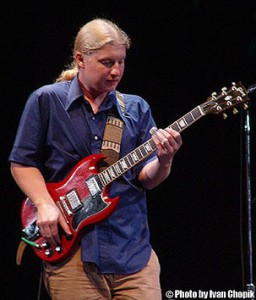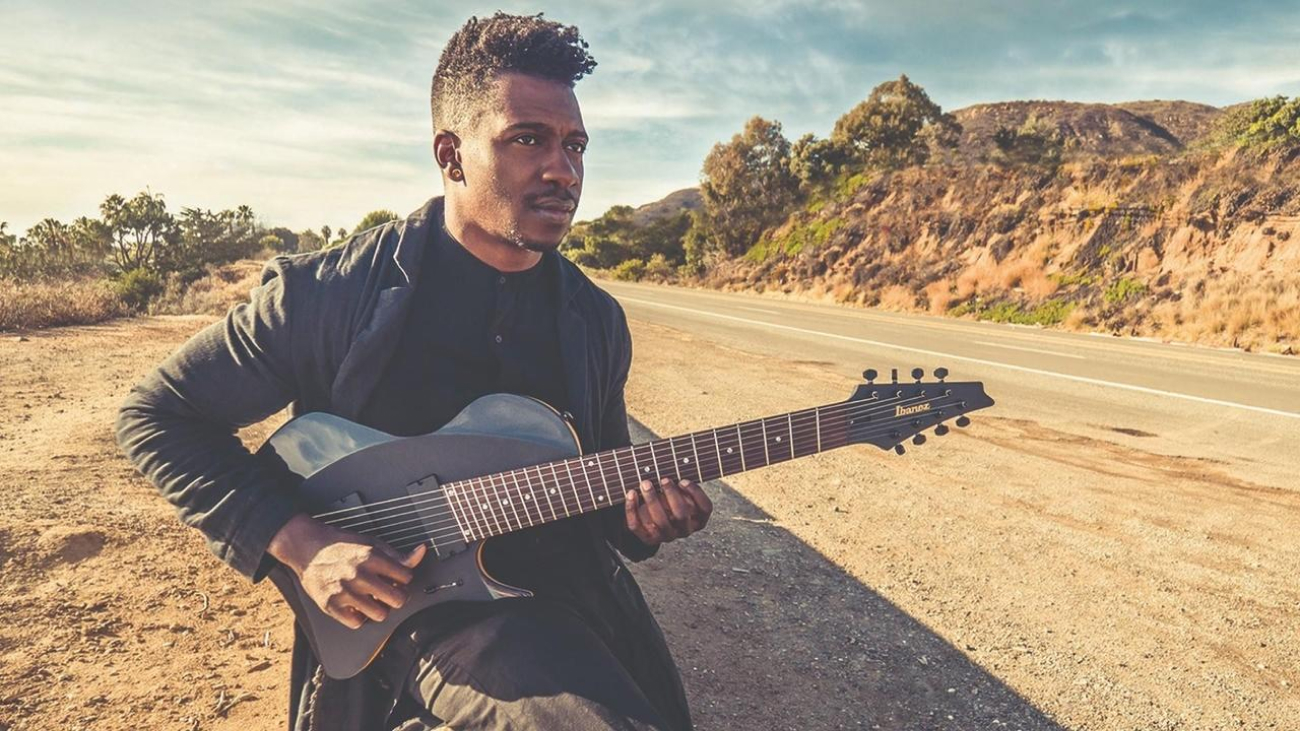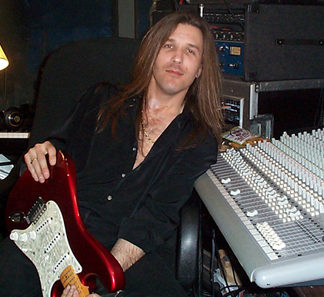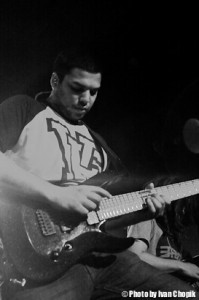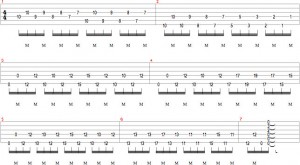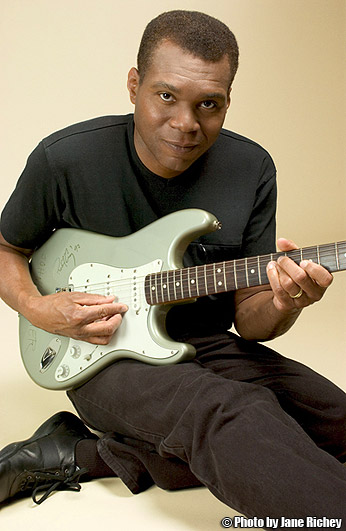 We’ve all heard a variation of the phrase “he can say more with one note than others can say with a million notes.” This one note belongs to Robert Cray – and he makes it weep and moan. The Grammy-winning musician has had a solid career for almost 30 years and is going as strong as ever with his latest release, Live From Across The Pond – his first live album. He is known to tell stories in his songs and deliver them with some of the most heartfelt guitar playing and soulful singing around. To learn more about Robert and his music, please visit www.robertcray.com.
We’ve all heard a variation of the phrase “he can say more with one note than others can say with a million notes.” This one note belongs to Robert Cray – and he makes it weep and moan. The Grammy-winning musician has had a solid career for almost 30 years and is going as strong as ever with his latest release, Live From Across The Pond – his first live album. He is known to tell stories in his songs and deliver them with some of the most heartfelt guitar playing and soulful singing around. To learn more about Robert and his music, please visit www.robertcray.com.
IC: What inspired a young Robert Cray to start playing the guitar and to later pursue a career in music?
RC: I started playing when I was 12 years old in mid-60’s and I was inspired to play the guitar because of the Beatles. When the Beatles came out everybody got a guitar and I wanted one as well. That’s what got me going. So you know with everybody playing guitar we sat around and listened to the radio and the kids in the carports and the garages would meet up and say ‘oh, you know that song you learned. Show me that one.’ So that’s what that was all about.
IC: What’s your background in music education? Did you have formal lessons?
RC: I had some formal lessons, but it wasn’t a continuous thing. It’s the school of the road.
IC: How old were you when you started hitting the road?
RC: We started the band when I was 20… in ‘74.
IC: Who would you say your influences are in terms of guitar playing?
RC: It goes all over the place. I’m a big fan of Hubert Sumlin, Magic Sam, Jimi Hendrix, Eric Clapton, Buddy Guy, Albert King, Albert Collins (who I had the opportunity to work with)… and I can go on all day with that. I like listening to a lot of different things as well. I’m a big fan of a guitar player who just passed in the last few years from Brazil named Baden Powell. I like his work a lot. And I try to listen to just about everything, everybody else.
IC: Can you talk about your songwriting process? Which comes first – the lyrics and the stories or the music?
RC: Well, it goes both ways. It all depends on what’s there. Sometimes it’s the musical thing that’s there and then the other times it’s the story that comes first. But I had the good fortune of working with one of my favorite songwriters, Dennis Walker, who was the co-producer of a lot of our earlier records and he was all about telling stories and music was the backdrop. Dennis wrote a lot of the songs that we did back on Strong Persuader and Don’t Be Afraid of the Dark and before that. You know, the songs about sneaking around and porch life, …so those are great visuals. And that was one of the main lessons I learned from Dennis.
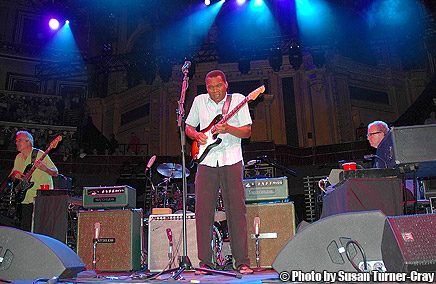 IC: Many of the themes in your songs deal with great pain and heartache. Where do you get your inspiration for all that?
IC: Many of the themes in your songs deal with great pain and heartache. Where do you get your inspiration for all that?
RC: Well, a lot of it is in keeping with the tradition of the kind of music that I like, which is R&B and blues, but then on some of the songs it’s observational. And then you can also take some pages from the past and I do that as well.
IC: Although you expand to various styles, the foundation of your music lies in the blues. Where do you see this music heading to in the coming years? Are there any younger players you’re aware of? There’s not that many that stay entirely true to the genre anymore.
RC: I think that’s a good thing, because it gives everybody an individual voice instead of everybody playing the same thing. I mean, how many times did you hear ‘Sweet Home Chicago?’ (laughs). And I like the song… I think that if you have an open mind to a lot of different kinds of things you’ll find a voice. I think that within the blues genre everybody does. Everybody has a different approach to what they do. There’s a lot of Rock n’ Roll that goes into blues now, a lot of R&B, and all kinds of things. So people are steppin’ in there and grabbing their own voice.
IC: It’s been about 27 years since your first album Who’s Been Talking? came out in the early 80’s and your latest album, Twenty, is without a doubt one of the strongest to date. What drives you to keep going all these years and how has the business changed during this time?
RC: What keeps me going is that I enjoy playing. I enjoy playing live and that’s the way it’s always been. We got into people like Magic Sam, Howlin’ Wolf, and Muddy Waters because of the game of those guys (laughs). And then we got into it because of the music and the groove and that’s what it was all about. It was the grooves, it was the vibe, it was the music, it was historic, it was all these things that we could just sink our teeth into. And I still find that it’s a lot of fun to do. Business kinda gets in the way of everything. Business goes up, business goes down and right now it’s good. I mean the thing about it these days is that we’re still a band that gets to play the music that we enjoy and have a lot of places to play it at.
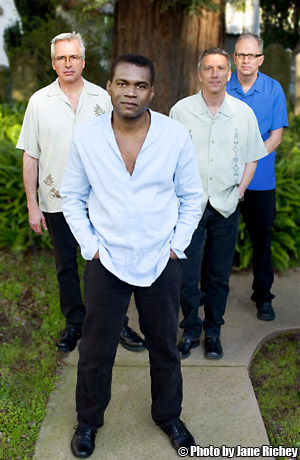 IC: How has that changed in terms of the venues you play and the crowds that come to see you?
IC: How has that changed in terms of the venues you play and the crowds that come to see you?
RC: We’ve done the whole gamut of different size venues and what not. Right now we’re on tour with Eric Clapton, so we’re playing the big venues. But we also play medium-sized venues (like 2000-seaters), and we’ll play big clubs. We did it all.
IC: You’re known for a very sweet and pure-sounding guitar tone. What kind of gear do you use nowadays?
RC: I use Strats. With Fender I have a signature model from the custom shop and also one that’s made in Mexico. I plug into a Matchless Clubman 35 with 4 [ten inch speakers]. I’ve always liked 4×10 inch speakers. I used to use [Fender] Super Reverbs and I still have those, but I use the Matchless with 4×10’s. I also use the Fender Vibroking with 3×10’s. It’s got a little bit different sound – a deeper sound than the Matchless, but definitely on the bright end.
IC: If you weren’t a professional musician nowadays, what do you think you’d be doing?
RC: I’d probably be a chef (laughs). I like to cook, because that’s kind of creative, too.
IC: You typically spend a great portion of the year on the road. When you’re back home, what do you like to do in your free time?
RC: I stay home, first of all, just to get acclimated. That’s one of the main reasons why I like to cook, because you get so tired of eating out. And then you know what you’re eating, so you can eat healthy. And I like to put my hand in the dirt in the garden.
IC: What advice can you give to aspiring musicians?
RC: I think the best thing that I can offer is just to have fun playing. I like to stay away from the business end of it. Just to play what you love.




